BSc (Hons) Sport & Exercise Psychology
Put psychology theory into practice as you learn its applications to sport and exercise. Develop a scientific understanding of the human mind and behaviour, addressing the key areas of psychology; developmental, social, cognitive, individual differences and research methods. *Please note this course is open for year 3 entry for September 2025 intake only*


Easy access to sport science and psychology labs

Apply now for this course
Entry requirements
Three A-levels at grades BBC or above
Or BTEC triple grades DMM or above
Or Access 30-42 D/M with minimum 18D
Or T level M
And GCSE English Language at grade 4 or grade C or above
UCAS points 112
UCAS code SEP1
UCAS institution code P63
Duration Three years full-time
Any questions?
Contact Tara Godber, our Applicant Support Coordinator, if you have any questions. Email applicantsupport@marjon.ac.uk and Tara will get back to you.
Course Summary
Our British Psychological Society (BPS) accredited BSc (Hons) Sport & Exercise Psychology degree covers an exciting and continually expanding field of study as there is an increasing need and awareness of sport and exercise psychology support services in relation to performance, public health and wellbeing.
This programme enables students to take key psychological theories and concepts and apply them to contemporary issues and working with people in sport, exercise and health contexts. The core modules cover; social, biological, cognitive and developmental psychology, individual differences, conceptual and historical issues in psychology and research methods.
The work of sport and exercise psychologists can be wide ranging, from working with high level athletes to help them reach their potential, to supporting the general population to maintain their exercise routines. You'll study modules from both psychology and sport courses which enables you to blend your understanding of both disciplines.
BSc (Hons) Sport & Exercise Psychology is designed to provide a scientific understanding of the human mind, brain, behaviour, and experience, and of the complex interactions between these, as applied to competitive and recreational sport and exercise. It seeks to develop students’ knowledge and understanding of mainstream psychology and to then consider it in a theoretical or applied sport and/ or exercise environment. It is the first step in the required qualifications essential to become a registered sport and exercise psychologist.
Why this course at Marjon?
Learn from qualified sport and exercise psychologists, who have considerable expertise and continue to consult with clients
Exploring the cutting edge research of sport and exercise psychology topics such as mental health and well-being in sport, and abuse in sport
Study on sports focused campus with like-minded people with onsite sport centre, gym and pool and health clinics
Work with NHS patients in exercise referral clinics
Work alongside wide range of athletes from elite sport to community focused exercise
The programme provides an excellent underpinning for further study in Sport and Exercise Psychology at postgraduate level
Modules for this course
Course Snapshot
“ In your first year you will gain an understanding of psychology and how that applies to a sporting context. You will also learn about factors that impact on health and wellbeing and how they can be overcome. During your second year you will learn key concepts in exercise psychology such as social support, self-esteem and concentration. You will also study key concepts such as memory, language and personality. In the third year you will learn advanced applied psychological techniques that can help improve sporting performance and will also study professional ethics and relationship management skills.”
1st Year
Foundations in psychology
Social psychology I
Introduction of sport, exercise & health psychology
Cognition and development
Understanding research: theory & method
Contextualising the field of sport and exercise psychology
2nd Year
Quantitative research in psychology
Developmental psychology
Social psychology in sport and exercise contexts
Qualitative research in psychology
Human cognition
Athlete welfare
3rd Year
Applied sport & exercise psychology
Advanced sport & exercise psychology
Working with people
Neuropsychology
Empirical project
Current students say...
Connor Bromley
“I enjoy the sports modules most, especially the ones relating to goal setting and self-talk. The lecturers are easy to get along with and the course has helped me to become more understanding of the people around me.”
Benjamin Cawley
“I most enjoy studying behaviourism and why people act in certain ways. I like the people in my class and the tutors are helpful, they always get the information across. I’ve developed through the group presentation task by mixing with new people and presenting in front of my peers.”
This course is perfect if you’re curious about
What is the relationship between mental health and sport and exercise?
Why do some individuals choke under pressure, and how can it be prevented?
How can you build lasting confidence in an individual?
How can you encourage long-lasting adherence to physical activity that benefits health?
How can psychology reduce injuries in athletes, and help athletes to overcome them?
How can athletes develop their concentration skills?
What might you become?
Our Sport and Exercise Psychology degree is accredited by the British Psychological Society (BPS) to provide graduates with chartered membership of the Society, the necessary first step in a career as a psychologist in the UK. The next step after completion of this BSc degree for a career as a chartered Sport and Exercise Psychologist is to complete a BPS accredited MSc Sport and Exercise Psychology programme. Training in Sport and Exercise Psychology is acquired through postgraduate education and supervised practice; you are not qualified to practice as a Sport and Exercise psychologist without further training.
This degree prepares students for a career in the field of sport and exercise psychology and supports progression into professional psychology careers paths including postgraduate training, educational psychology, clinical psychology, occupational psychology, health psychology, teaching (further training required) and research. It also provides excellent preparation for other related careers in sport science support, the sport, fitness and health industries, and health promotion.
Accreditation
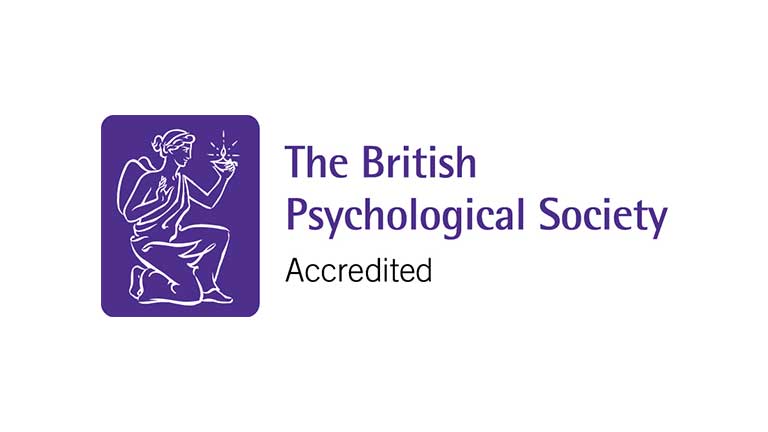
British Psychological Society (BPS)
BPS accreditation ensures an engaging experience and means that upon graduation, students will be eligible for Graduate Basis Chartered Membership of the BPS which is required of applicants to the postgraduate training programmes that lead to becoming a Chartered Psychologist.
How you’ll be taught and assessed?
How will you be taught?
Teaching typically includes lectures, seminars, practical’s and interactive group work. There are typically 12-14 hours of contact per week.
How will you be assessed?
Assessment methods are through case studies, exams, practical assessment, critical reviews, essays, oral presentations, poster presentations, portfolios, and research thesis.
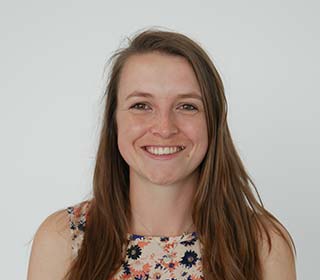
Rosanna specialises in the psychology of sporting performance, examining the critical perceptual cognitive factors that enable elite performance. Her research fields are cognitive psychology, performance psychology and quantitative methods.
Fees and funding
Fees UK students: £9,535 per annum
Fees for International students: £14,600 per annum
This fee covers your tuition and access to course-specific equipment and facilities, as well associated services including access to the library, study skills support, IT support, student support and wellbeing services and membership of the Student Union. There may be additional costs by course.
Funding available for this course
Our Student Funding Advisors offer confidential and impartial advice about your funding options.
Learn moreLecturers

Melissa has research interests that include increasing self-awareness and positive growth and mental health, developing confidence and emotional control, reducing anxiety, and facilitating communication.
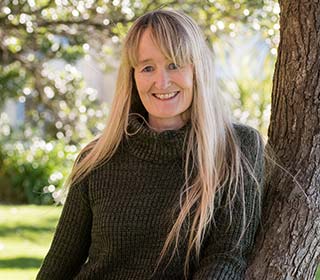
Dr Katheryn Edwards is a BPS Chartered Psychologist and Fellow of the Higher Education Academy. Her PhD investigated a dual process account of human mind-reading. Katheryn teaches across a number of modules relating to cognitive psychology, developmental psychology, research methods and study skills.
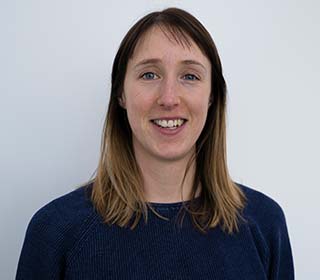
Sophie, who plays pool for England, teaches sport and exercise psychology principles and how these can be applied to improve sport performance and wellbeing.
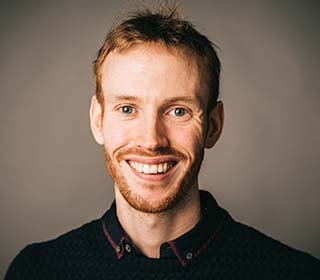
Alister teaches psychology and its applications to sport, exercise, and health. His main research interest is how psychological interventions can be used to improve the performances of people who participate in endurance events, such as middle- and long-distance running, cycling, swimming, and triathlon events.
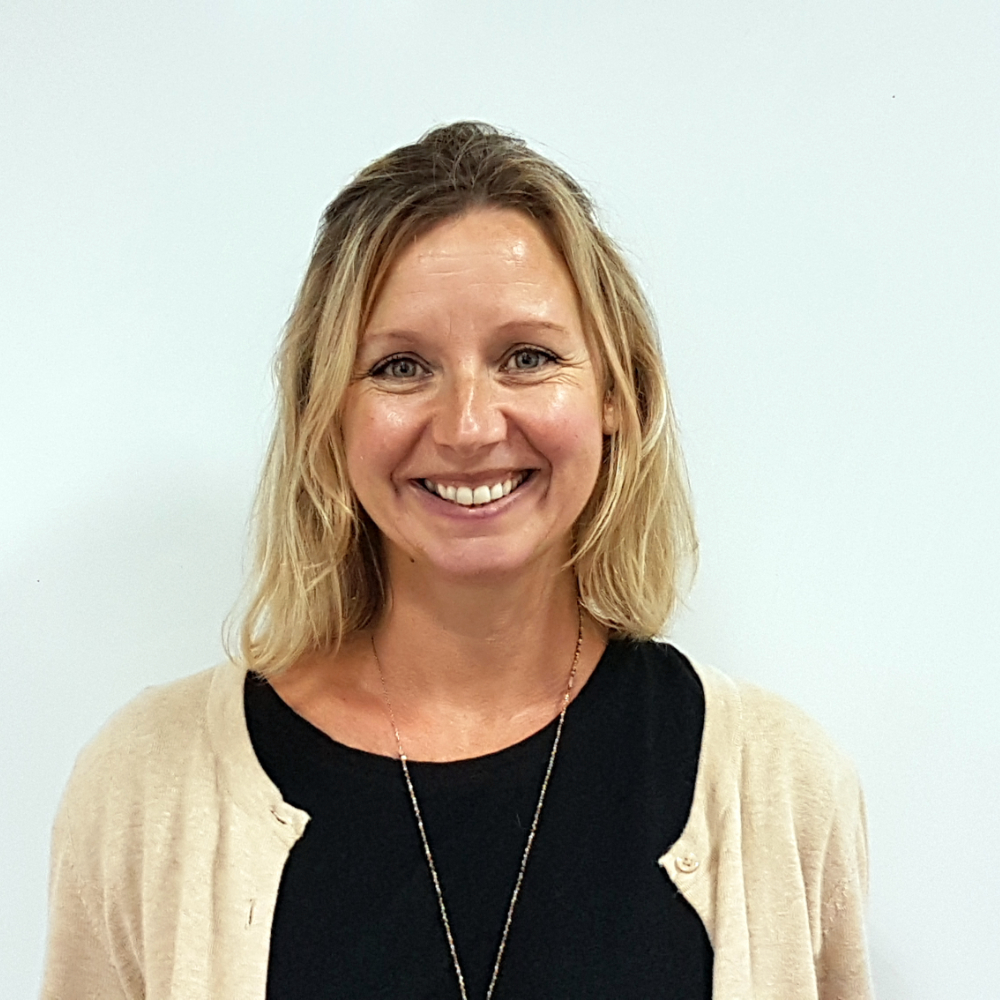
Carina is a BPS Chartered Counselling Psychologist and a Fellow of the Higher Education Academy. Her teaching is mainly focused around social psychology and mental health within the discipline and how these can be applied to the world we live in. She teaches across a range of undergraduate and post-graduate psychology programmes. She has worked as a clinical practitioner on a one-to-one and group basis, across a range of settings, including primary care, the police and private practice for over 30 years. Specialist interests and expertise include: PTSD, Trauma, Eating Disorders.

Jonathan specialises in applied neuropsychology and has a research background investigating the therapeutic use of gamified cognitive training for young people with visuocognitive difficulties caused by brain injury or neurodivergence. He is a Fellow of the Higher Education Authority and teaches across a number of modules on the undergraduate and postgraduate psychology programmes related to cognitive neuroscience, neuropsychology, and applied research methods.

Rosanna specialises in the psychology of sporting performance, examining the critical perceptual cognitive factors that enable elite performance. Her research fields are cognitive psychology, performance psychology and quantitative methods.
Frequently asked questions
Q1 Are there any exams?
Q2 What does the timetable look like?
Q3 How big is the class?
Q4 Is the course accredited?
Q5 Is there a placement?
Find out more about studying BSc (Hons) Sport & Exercise Psychology at Marjon

Discover Uni collects data about university courses in the UK. All universities publish Discover Uni data on their online course pages enabling you to compare similar courses at different universities.


